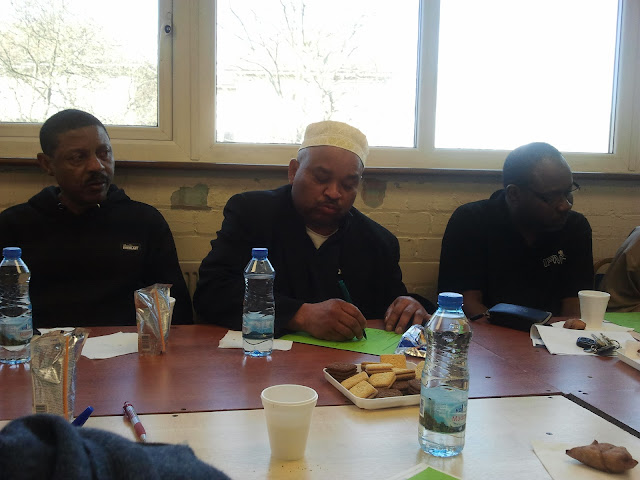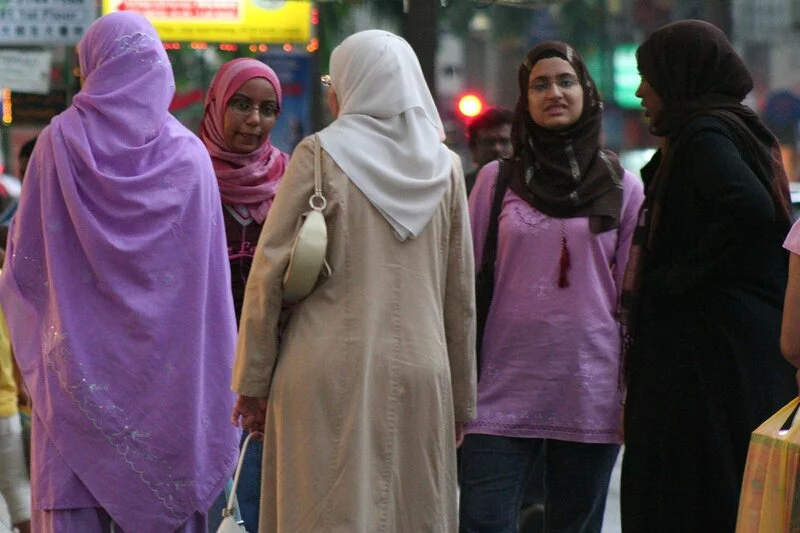رَبَّنَا آتِنَا فِي الدُّنْيَا حَسَنَةً وَفِي الآخِرَةِ حَسَنَةً وَقِنَا عَذَابَ النَّارِ
1. Mola wetu Mlezi, tupe duniani mema, na Akhera mema, na utulinde na adhabu ya Moto! (2:201).
رَبَّنَا أَفْرِغْ عَلَيْنَا صَبْرًا وَثَبِّتْ أَقْدَامَنَا وَانصُرْنَا عَلَى الْقَوْمِ الْكَافِرِينَ
2. Mola wetu Mlezi! Tumiminie subira, na isimamishe imara miguu yetu, na utusaidie tuwashinde watu Makafiri (2:250).
رَبَّنَا لاَ تُؤَاخِذْنَا إِن نَّسِينَا أَوْ أَخْطَأْنَا
3. Mola wetu Mlezi! Usituchukulie tukisahau au tukikosea. (2:286)
رَبَّنَا وَلاَ تَحْمِلْ عَلَيْنَا إِصْرًا كَمَا حَمَلْتَهُ عَلَى الَّذِينَ مِن قَبْلِنَا
4. Mola wetu Mlezi! Usitubebeshe mzigo kama ulio wabebesha wale walio kuwa kabla yetu. (2:286).
رَبَّنَا وَلاَ تُحَمِّلْنَا مَا لاَ طَاقَةَ لَنَا بِهِ وَاعْفُ عَنَّا وَاغْفِرْ لَنَا وَارْحَمْنَا أَنتَ مَوْلانَا فَانصُرْنَا عَلَى الْقَوْمِ الْكَافِرِينَ
5. Mola wetu Mlezi Usitutwike tusiyo yaweza, na utusamehe, na utughufirie, na uturehemu. Wewe ndiye Mlinzi wetu. Basi tupe ushindi tuwashinde kaumu ya makafiri. (2:286).
رَبَّنَا لاَ تُزِغْ قُلُوبَنَا بَعْدَ إِذْ هَدَيْتَنَا وَهَبْ لَنَا مِن لَّدُنكَ رَحْمَةً إِنَّكَ أَنتَ الْوَهَّابُ
6. Mola wetu Mlezi! Usizipotoe nyoyo zetu baada ya kwisha tuongoa, na utupe rehema itokayo kwako. Hakika Wewe Ndiye Mpaji. (3:8).
رَبَّنَا إِنَّكَ جَامِعُ النَّاسِ لِيَوْمٍ لاَّ رَيْبَ فِيهِ إِنَّ اللَّهَ لاَ يُخْلِفُ الْمِيعَادَ
7. Mola wetu Mlezi! Tughufirie madhambi yetu na kupita kwetu kiasi katika mambo yetu, na isimamishe imara miguu yetu na utunusuru tuwashinde kaumu ya makafiri. (3:147
رَبَّنَا إِنَّكَ مَن تُدْخِلِ النَّارَ فَقَدْ أَخْزَيْتَهُ وَمَا لِلظَّالِمِينَ مِنْ أَنصَار
8. Mola wetu Mlezi! Hakika unaye mtia Motoni umemhizi; na walio dhulumu hawana wasaidizi. (3:192).
رَّبَّنَا إِنَّنَا سَمِعْنَا مُنَادِيًا يُنَادِي لِلإِيمَانِ أَنْ آمِنُواْ بِرَبِّكُمْ فَآمَنَّا
9. Mola wetu Mlezi! Hakika sisi tumemsikia mwenye kuita akiitia Imani kwamba: Muaminini Mola wenu Mlezi; nasi tukaamini. (3:193).
رَبَّنَا فَاغْفِرْ لَنَا ذُنُوبَنَا وَكَفِّرْ عَنَّا سَيِّئَاتِنَا وَتَوَفَّنَا مَعَ الأَبْرَارِ
10. Mola wetu Mlezi! basi tusamehe madhambi yetu, na utufutie makosa yetu, na utufishe pamoja na watu wema. (3:193).
رَبَّنَا وَآتِنَا مَا وَعَدتَّنَا عَلَى رُسُلِكَ وَلاَ تُخْزِنَا يَوْمَ الْقِيَامَةِ إِنَّكَ لاَ تُخْلِفُ الْمِيعَادَ
11. Mola wetu Mlezi! Na utupe uliyo tuahidi kwa Mitume wako, wala usituhizi Siku ya Kiyama. Hakika Wewe huvunji miadi. (3:194).
رَبَّنَا ظَلَمْنَا أَنفُسَنَا وَإِن لَّمْ تَغْفِرْ لَنَا وَتَرْحَمْنَا لَنَكُونَنَّ مِنَ الْخَاسِرِينَ
12. Mola wetu Mlezi! tumejidhulumu nafsi zetu, na kama hutusamehe na kuturehemu, hakika tutakuwa katika wenye kukhasirika. (7:23).
رَبَّنَا لاَ تَجْعَلْنَا مَعَ الْقَوْمِ الظَّالِمِينَ
13. Mola Mlezi wetu! Usitujaalie kuwa pamoja na watu walio dhulumu. (7:47).
رَبَّنَا افْتَحْ بَيْنَنَا وَبَيْنَ قَوْمِنَا بِالْحَقِّ وَأَنتَ خَيْرُ الْفَاتِحِينَ
14. Ewe Mola Mlezi wetu! Tuhukumie baina yetu na kaumu yetu kwa haki, nawe ndiye mbora wa wanao hukumu. (7:89).
رَبَّنَا أَفْرِغْ عَلَيْنَا صَبْرًا وَتَوَفَّنَا مُسْلِمِينَ
15. Ewe Mola Mlezi wetu! Tumiminie uvumilivu na utufishe hali ni Waislamu. (7:126).
رَبَّنَا لاَ تَجْعَلْنَا فِتْنَةً لِّلْقَوْمِ الظَّالِمِينَ. وَنَجِّنَا بِرَحْمَتِكَ مِنَ الْقَوْمِ الْكَافِرِينَ
16. Ewe Mola wetu Mlezi! Usitufanye wenye kutiwa misukosuko na hao watu madhaalimu. Na utuokoe kwa rehema yako na watu makafiri. (10:85-86)
رَبَّنَا إِنَّكَ تَعْلَمُ مَا نُخْفِي وَمَا نُعْلِنُ وَمَا يَخْفَى عَلَى اللَّهِ مِن شَيْءٍ فِي الأَرْضِ وَلاَ فِي السَّمَاء
17. Ewe Mola wetu Mlezi! Hakika Wewe unajua tunayo yaficha na tunayo yatangaza. Na hapana kitu kinacho fichikana kwa Mwenyezi Mungu katika ardhi wala katika mbingu. (14:38).
رَبَّنَا آتِنَا مِن لَّدُنكَ رَحْمَةً وَهَيِّئْ لَنَا مِنْ أَمْرِنَا رَشَدًا
18. Mola wetu Mlezi! Tupe rehema itokayo kwako, na tutengezee uwongofu katika jambo letu. (18:10).
رَبَّنَا هَبْ لَنَا مِنْ أَزْوَاجِنَا وَذُرِّيَّاتِنَا قُرَّةَ أَعْيُنٍ وَاجْعَلْنَا لِلْمُتَّقِينَ إِمَامًا
19. Mola wetu Mlezi! Tupe katika wake zetu na wenetu yaburudishayo macho, na utujaalie tuwe waongozi kwa wachamngu. (25:74).
رَبَّنَا وَسِعْتَ كُلَّ شَيْءٍ رَّحْمَةً وَعِلْمًا فَاغْفِرْ لِلَّذِينَ تَابُوا وَاتَّبَعُوا سَبِيلَكَ وَقِهِمْ عَذَابَ الْجَحِيمِ
20. Mola wetu Mlezi! Umekienea kila kitu kwa rehema na ujuzi. Basi wasamehe walio tubu na wakaifuata Njia yako, na waepushe na adhabu ya Jahannamu. (40:7).
رَبَّنَا وَأَدْخِلْهُمْ جَنَّاتِ عَدْنٍ الَّتِي وَعَدتَّهُم وَمَن صَلَحَ مِنْ آبَائِهِمْ وَأَزْوَاجِهِمْ وَذُرِّيَّاتِهِمْ إِنَّكَ أَنتَ الْعَزِيزُ الْحَكِيمُ
21. Mola wetu Mlezi! Na waingize katika Bustani za Milele ulizo waahidi. Na uwape haya pia wale walio fanya mema miongoni mwa wazee wao na wake zao na dhuriya zao. Hakika Wewe ni Mwenye nguvu, Mwenye hikima. (40:8).
رَبَّنَا اكْشِفْ عَنَّا الْعَذَابَ إِنَّا مُؤْمِنُونَ
22. Mola wetu Mlezi! Tuondolee adhabu hii. Hakika tutaamini. (44:12).
رَبَّنَا اغْفِرْ لَنَا وَلِإِخْوَانِنَا الَّذِينَ سَبَقُونَا بِالإِيمَانِ وَلا تَجْعَلْ فِي قُلُوبِنَا غِلًّا لِّلَّذِينَ آمَنُوا رَبَّنَا إِنَّكَ رَؤُوفٌ رَّحِيمٌ
23. Mola wetu Mlezi! Tughufirie sisi na ndugu zetu walio tutangulia kwa Imani, wala usijaalie ndani ya nyoyo zetu undani kwa walio amini. Mola wetu Mlezi! Hakika Wewe ni Mpole na Mwenye kurehemu. (59:10).
رَّبَّنَا عَلَيْكَ تَوَكَّلْنَا وَإِلَيْكَ أَنَبْنَا وَإِلَيْكَ الْمَصِيرُ
24. Mola wetu Mlezi! Juu yako tumetegemea, na kwako tumeelekea, na kwako ndio marejeo. (60:4).
رَبَّنَا أَتْمِمْ لَنَا نُورَنَا وَاغْفِرْ لَنَا إِنَّكَ عَلَى كُلِّ شَيْءٍ قَدِيرٌ
25. Mola wetu Mlezi! Tutimilizie nuru yetu, na utughufirie! Hakika Wewe ni Mwenye uweza juu ya kila kitu. (66:8).























